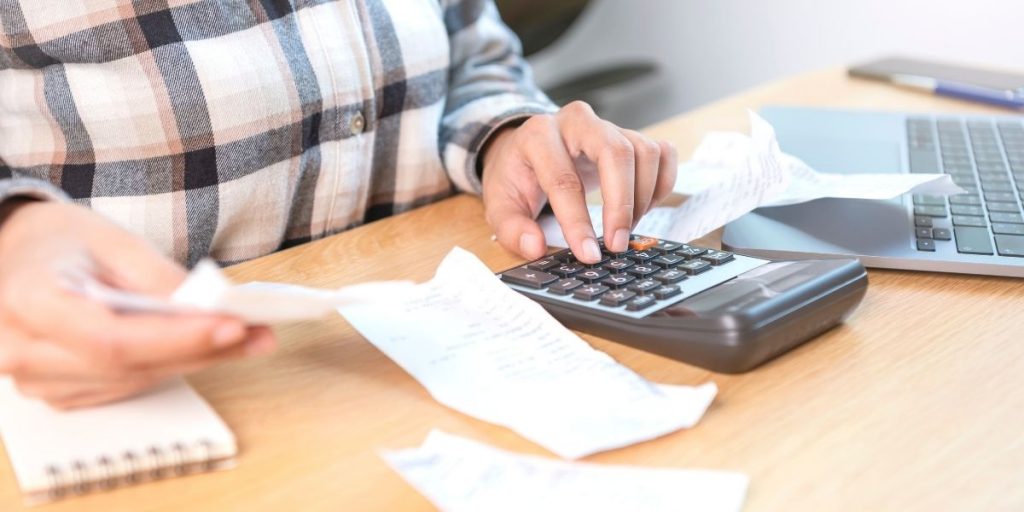Grocery items are the most important part of our life and daily routine. The expenditure on its purchase is a big part of our income. A question often comes to the mind of people: how to save money on grocery shopping? With a few simple steps and smart moves, you can cut down on your grocery expenses and save money every month on groceries.
Many times it happens that people go to buy a small grocery item and fill their bags with unnecessary products. This is the result of shopping without planning. A well-planned grocery shopping list allows you to save money on groceries by entering and exiting the grocery store fast along with sticking to your budget. Planning your grocery expenses will save you from breaking your bank. Here are a few tips and tricks to help you save money on groceries practically.
Tips To Save Money on Groceries Every Month
Budget your Grocery Spendings

Budgeting is the first step to saving more money when shopping for groceries. To budget your grocery shopping, collect your old grocery bill and see which are the most important items and which are the unnecessary items that can be trimmed. Make your budget accordingly. After learning these, repeat this approach until your grocery budget reaches your desired level.
Plan your Meals
Meal planning is beneficial for both our health and our wallets. Through this, designing a monthly grocery budget becomes quite easy. Before going grocery shopping, it is very important to plan meals so that you can shop accordingly. Include essential nutritious food in your meal plan and eliminate unnecessary and junk food. This will keep your health good and you will also save a lot of money, considering good ingredients are usually cost-effective.
Simplify your Meal Options
Try to keep your food as simple as possible. Eat nutritious food and avoid extravagance. Often, at home or outside, we spend more on appetisers and desserts than on the main course meal. Not every meal must be a fancy experience with a dessert and an appetizer.
Make a Shopping List

Creating a shopping list is one of the most important steps for saving money on groceries. If you don’t go to the supermarket with a shopping list, you’ll end up spending more than you need to. Note down your month’s food and other necessities on your shopping list, so that you will not have to think about anything else while shopping. You’ll only shop for what you went for, so you’ll stick to your list and save money.
Use Money Saving Shopping Apps
A money-saving app can prove to be a boon in grocery shopping. There are many such apps from which you can get great discounts and cashback on grocery shopping. CashKaro is India’s best Discount, coupon, and Cashback app available on Google Play Store and Apple App Store that offers you extra cashback on every purchase in addition to great discounts when you shop on 1500+ shopping sites like Amazon, Big Bazaar, TataCLiQ, and more. Using a money saver app can help you save a lot of money every month on grocery shopping.
Avail a bonus of Rs 60 by signing up on the Cashkaro app and enjoy exciting discounts and Cashback on every purchase.
Shop during Sales
Going shopping and finding your favourite items at reduced prices is always a good thing. It tickles our interest, and we want to get it as soon as possible in order to take advantage of the possibility to save money while receiving high-quality products. Everyone likes a sale, to buy their needed items once a deal is announced. Sales can prove to be a great money saver in grocery shopping. The sale often offers great discounts on grocery items and sometimes gets you freebies as well.
Buy in Bulk

Buying in bulk is generally less expensive than buying retail at the supermarket. Since you do not have to pay for the extra packaging. For example, if you buy two packets, the company will spend more on its packaging, wrap, which will eventually add up to the product. Bulk buying means you don’t have to spend on anything other than the actual stuff, unlike the fancy packaging that corporations charge. Buying in bulk also offers good discounts and you can bargain as well, which can save money on groceries.
Buy Generic Products
Neither every branded product is very good nor every generic product is bad in terms of quality. Sometimes generic products are much better than branded products and are available at a much lower price. There are various high-quality generic replacements for many name-brand items. You simply need to do your research and discover them. For example, if you buy wheat flour from a brand, you will have to pay more. but you can save money if you choose a home-grown startup that offers better quality wheat flour at a cost-effective price.
Avoid Food Waste
Food wastage is a major reason for unnecessary expenditure. A lot of money can be saved by preventing food wastage. Food waste may be reduced by careful food preservation to minimise deterioration. Avoid putting dairy items in the refrigerator where the temperature fluctuates. Buy small packs of perishable items in small quantities according to your needs. Cook only that much food as you need. Another strategy to reduce waste is to pay attention to expiry dates on items while shopping. Don’t buy something if you won’t be able to finish it by the expiry date.
Compare Prices

Major supermarket chains always offer grocery items at a price lower than or equal to their competitors. Which you can take advantage of and save your money. When shopping for your groceries, compare prices across multiple stores and choose the cheapest. CashKaro allows you to browse various grocery stores in one place where you can get the best coupons, discounts, and extra cashback.
Choose restocking days for shopping
Supermarkets follow a certain routine. Most grocery stores restock their shelves twice a week. While individual sellers will enter a store to offer their wares during the week, the supermarket will get a significant supply of items to inventory on two days every week. Plus, during stocking days, the store is more likely to list things on sale which you can get earlier rather than waiting for the sales cycle.
Buy Seasonal Fruits and Vegetables
Fruits and vegetables are best in their actual season and are also quite cost-effective. Whereas in the off-season, the same fruits and vegetables are available at high prices. For example, if you go to buy mangoes during winter, it will be very expensive. but if you buy mangoes in their season, the price will be much less. If you’re looking to save money on groceries, buy seasonal fruits and vegetables while they’re on sale.
Don’t Shop with an Empty Stomach
It is not a good idea to go grocery shopping with an empty stomach. You’re likely to make poor choices based on transitory appetites rather than your budget or the nutritious composition of the meal. Being hungry not only makes you buy unnecessary food items like chips, ice cream, candy bars, but it can also lead to an expensive shopping day. An empty stomach can empty your wallet.
Don’t shop with your kids

Leave your child at home with someone responsible while grocery shopping. Children often insist on unnecessary things which are quite expensive. The fewer people you bring to shopping, the lower your expenses will be.
Cut the Size of Products
Cut down to size for grocery products, buy only as much as you need. Often people get caught up in the discount and marketing gimmick and take more things that are not really needed. Later these things go to waste. Reducing the serving size can meet the food requirement and also save money.
Take your own carry bag
Stores charge separately for carrying bags. You can bring your own carry bag. Purchasing a carry bag at the store is an added expenditure that you may save by taking it yourself. You will not only save your hard-earned money on unnecessary things but will also save the environment.
Price Comparison by Weight

In the store, you will find a variety of brands and packaging for a single item. They will differ in cost and weight. When purchasing things, it is important to analyse items by weight and price. For example, if you wish to buy 1 kg of flour, you may have two choices. The first step is to select two half-Kg packs. The other option is to purchase a single 1 Kg pack. This is where you should analyse which one will cost you the least.
Cross-check your Bill
Check your invoice and item prices separately to ensure that you are not being overcharged by the retailer. Cashiers are also humans, they can make mistakes. There is a chance that the cost of a product was added twice by accident, or that the incorrect value was added. If you see any mistake in the bill, please report it to the retailer’s customer service. They will evaluate it and, if necessary, return the sum.
Conclusion
Updating your buying patterns and attitude can help you reduce your grocery expenditures and save money on groceries. Being a more savvy grocery buyer benefits you in more ways than one. Along with saving money, you can also save the environment and natural resources by reducing food wastage.
FAQs
How to save money on groceries?
By updating the buying patterns, one can save money on groceries. Read the article for detailed information.
How to save money on groceries with a coupon code?
Shop via CashKaro to save money on groceries with a coupon code.
How to save money every month on groceries?
One can easily save money every month on groceries by adding certain practices like shopping on sale, use of cashback apps, stopping wasting food to your habits, and more.
How to save money on Groceries with Extra Cashback?
India’s biggest cashback site CashKaro.com offers extra cashback on grocery shopping on various e-commerce giants.
What is a good rule for saving money on Groceries?
Making a strategy for buying groceries by budgeting and planning is a good rule for saving money on Groceries.
Other Money Saving Ideas:
Ways To Save Money For Students




